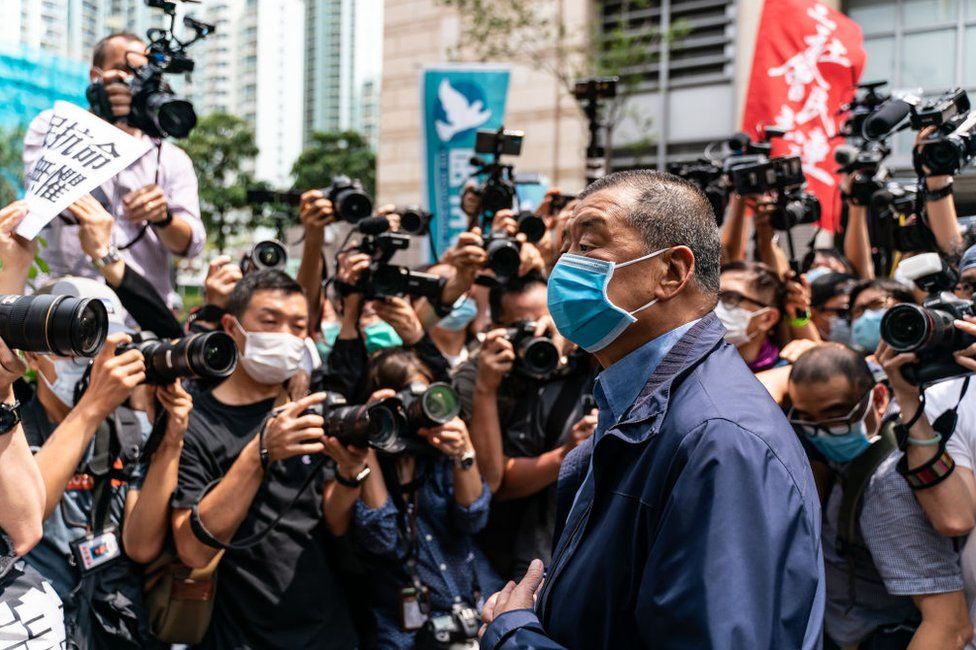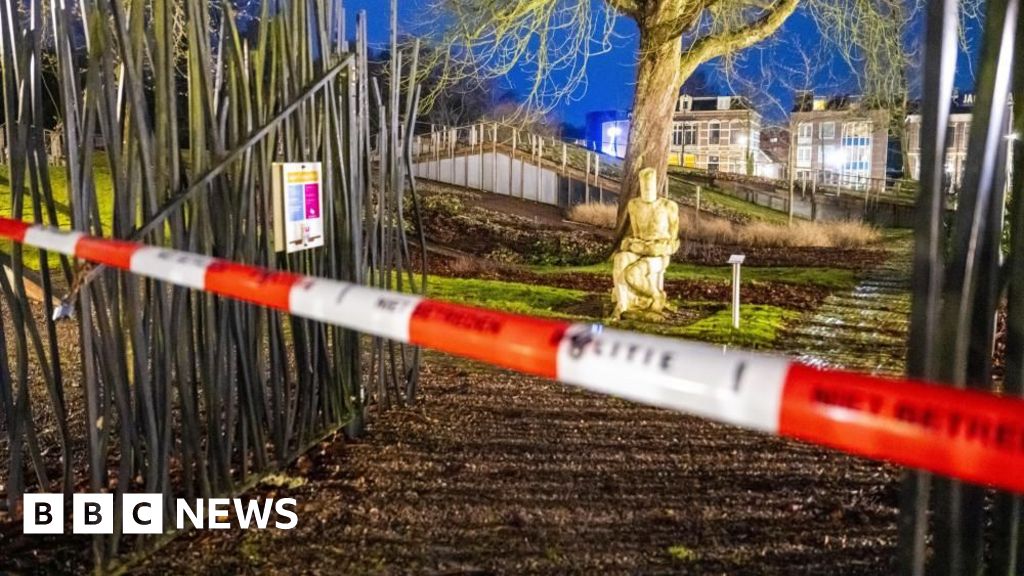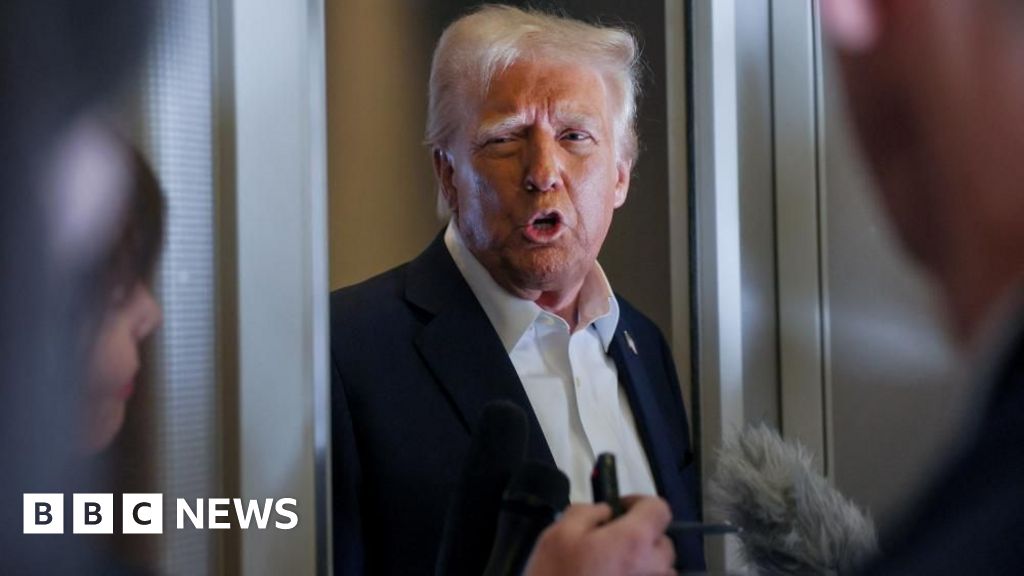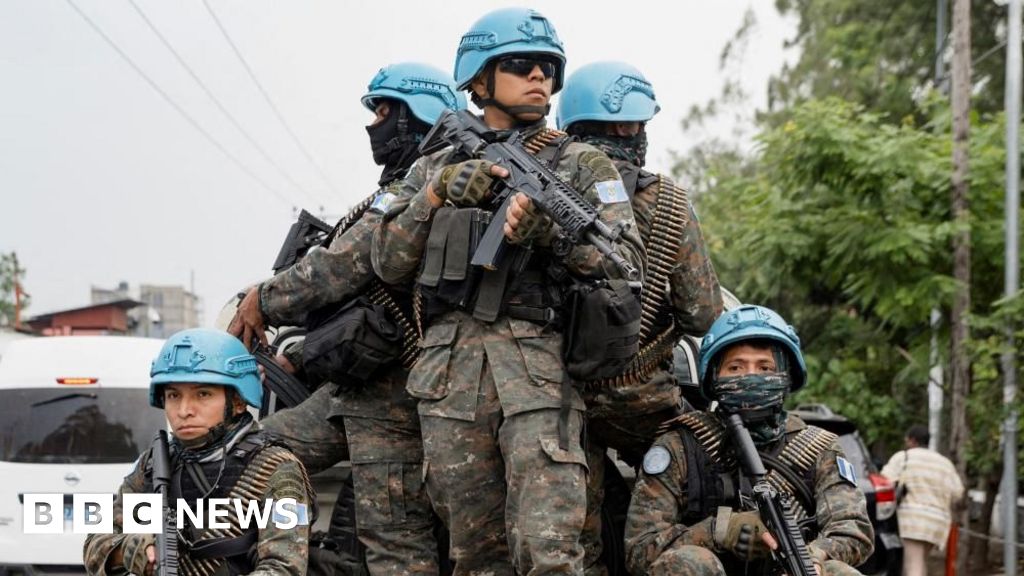ARTICLE AD BOX
 Image source, Getty Images
Image source, Getty Images
All eyes are on Hong Kong as Jimmy Lai's long-awaited trial begins in the city on Monday
Pro-democracy media tycoon Jimmy Lai's long-awaited trial over charges that he "colluded with foreign forces" has begun in Hong Kong.
The 76-year-old, who has been in prison since December 2020, could be jailed for life if he is found guilty.
Mr Lai was arrested under the National Security Law, which China has been accused of wielding to crush dissent.
His case has drawn international uproar and is widely seen as a test of Hong Kong's judicial independence.
Beijing, which introduced the NSL in 2020 in response to massive pro-democracy protests, insists that the law is necessary to quell unrest. It considers Mr Lai a traitor who sought to undermine China's national security. But critics say Mr Lai's case is yet another example of Beijing's tightening grip on Hong Kong.
Mr Lai's legal team said he has been denied his right to a fair hearing. They point to the fact that he was denied his choice of legal representation, after Beijing barred him from appointing a UK lawyer, and that he is being tried by three judges handpicked by Hong Kong's leader John Lee.
Mr Lai is both a Hong Kong and UK citizen. On Sunday UK Foreign Secretary David Cameron called for his release, following a meeting earlier this month with Mr Lai's son.
"As a prominent and outspoken journalist and publisher, Jimmy Lai has been targeted in a clear attempt to stop the peaceful exercise of his rights to freedom of expression and association," Mr Cameron said in a statement.
Mr Lai, an outspoken critic of the Chinese Communist Party, is one of the most high-profile people to be arrested under Hong Kong's National Security Law (NSL).
Before he was detained, he was often at the frontlines of pro-democracy protests, such as the Umbrella Movement of 2014 and demonstrations against an extradition bill in 2019. He founded and ran some of Hong Kong's best-known media outlets, including the now-defunct newspaper Apple Daily.
Mr Lai is also facing a sedition charge under a colonial-era law based on his tweets, interviews he hosted, as well as articles published in Apple Daily.
Some of the most serious charges against Mr Lai are centered on Apple Daily, which he founded in 1995. The Chinese-language tabloid had been staunchly critical of Beijing and at one point called for international sanctions against Chinese and local officials.
The newspaper was forced to shut down in June 2021, after police froze $2.3m of its assets, raided its offices and arrested some of its top editors - accusing them of "colluding with foreign forces" to endanger national security.
Mr Lai was arrested along with six other former Apple Daily executives who have pleaded guilty to the charges.
Ahead of Monday's trial, the courthouse was heavily guarded with police officers in anti-stabbing vests and police dogs. Some passers-by were stopped and searched as dozens of people queued to enter the public gallery, among them consulate representatives from Britain, Australia and New Zealand.
Prominent pro-democracy activist, 77-year-old Alexandra Wong, better known as Grandma Wong, was outside the court - a lone figure, shouting slogans as she was surrounded by police.
Image source, Getty Images
Image caption,Grandma Wong outside the courtroom during Jimmy Lai's trial
Since his arrest in August 2020, Mr Lai has been held in solitary confinement in a maximum-security prison for more than 1,00 days. The trial, which has been delayed for a year, is expected to last for about 80 days. It has already sparked calls for his release.
Beijing's and Hong Kong's actions have "undermined Hong Kong's democratic institutions and harmed Hong Kong's reputation as an international business and financial hub", US State Department's spokesperson Matthew Miller said.
Human Rights Watch has condemned Mr Lai's trial as a "travesty". The group's China director Maya Wang called on "concerned governments" to press authorities to drop Mr Lai's charges, which she says has "contributed to seriously damaging press freedom in Hong Kong".
China has denounced what it sees as international intervention in Mr Lai's case.
"The UK's backing of an anti-China, Hong Kong destabiliser who broke the law constitutes a flagrant interference in a case that has already entered judicial proceedings," the Chinese embassy in the UK said.
Mr Lai's trial begins two weeks after the conclusion of another long-running national security trial of pro-democracy figures known as the Hong Kong 47. A verdict is expected in March.
Last week, Hong Kong police offered a fresh batch of bounties for information leading to the arrests of five pro-democracy activists who are living in exile.

 1 year ago
19
1 year ago
19








 English (US) ·
English (US) ·